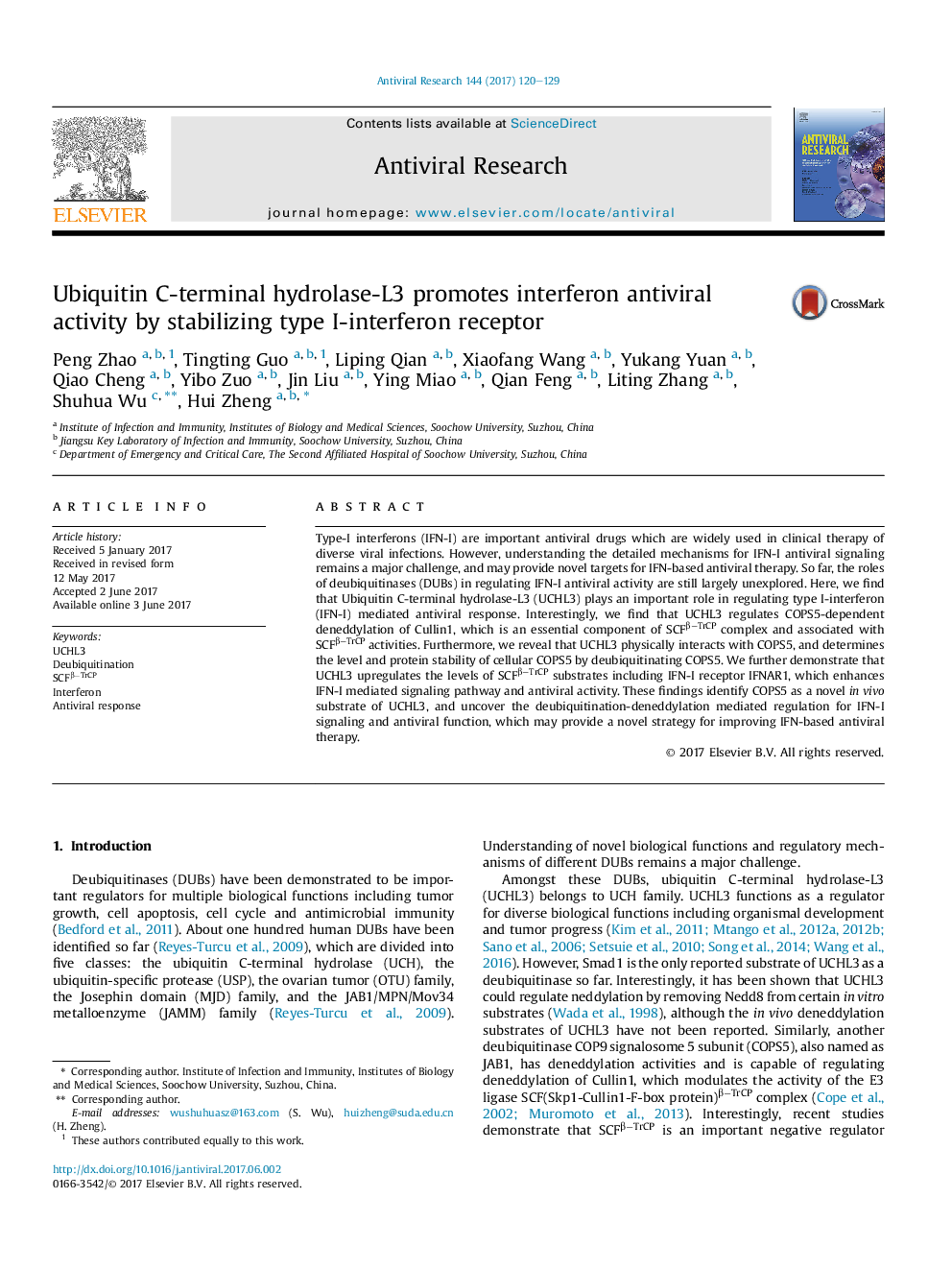| Article ID | Journal | Published Year | Pages | File Type |
|---|---|---|---|---|
| 5551706 | Antiviral Research | 2017 | 10 Pages |
â¢UCHL3 promotes IFN-I mediated antiviral activity.â¢UCHL3 deubiquitinates and stabilizes COPS5.â¢UCHL3 regulates COPS5-dependent deneddylation of Cullin1.â¢UCHL3 upregulates IFNAR1 levels.
Type-I interferons (IFN-I) are important antiviral drugs which are widely used in clinical therapy of diverse viral infections. However, understanding the detailed mechanisms for IFN-I antiviral signaling remains a major challenge, and may provide novel targets for IFN-based antiviral therapy. So far, the roles of deubiquitinases (DUBs) in regulating IFN-I antiviral activity are still largely unexplored. Here, we find that Ubiquitin C-terminal hydrolase-L3 (UCHL3) plays an important role in regulating type I-interferon (IFN-I) mediated antiviral response. Interestingly, we find that UCHL3 regulates COPS5-dependent deneddylation of Cullin1, which is an essential component of SCFβâTrCP complex and associated with SCFβâTrCP activities. Furthermore, we reveal that UCHL3 physically interacts with COPS5, and determines the level and protein stability of cellular COPS5 by deubiquitinating COPS5. We further demonstrate that UCHL3 upregulates the levels of SCFβâTrCP substrates including IFN-I receptor IFNAR1, which enhances IFN-I mediated signaling pathway and antiviral activity. These findings identify COPS5 as a novel in vivo substrate of UCHL3, and uncover the deubiquitination-deneddylation mediated regulation for IFN-I signaling and antiviral function, which may provide a novel strategy for improving IFN-based antiviral therapy.
